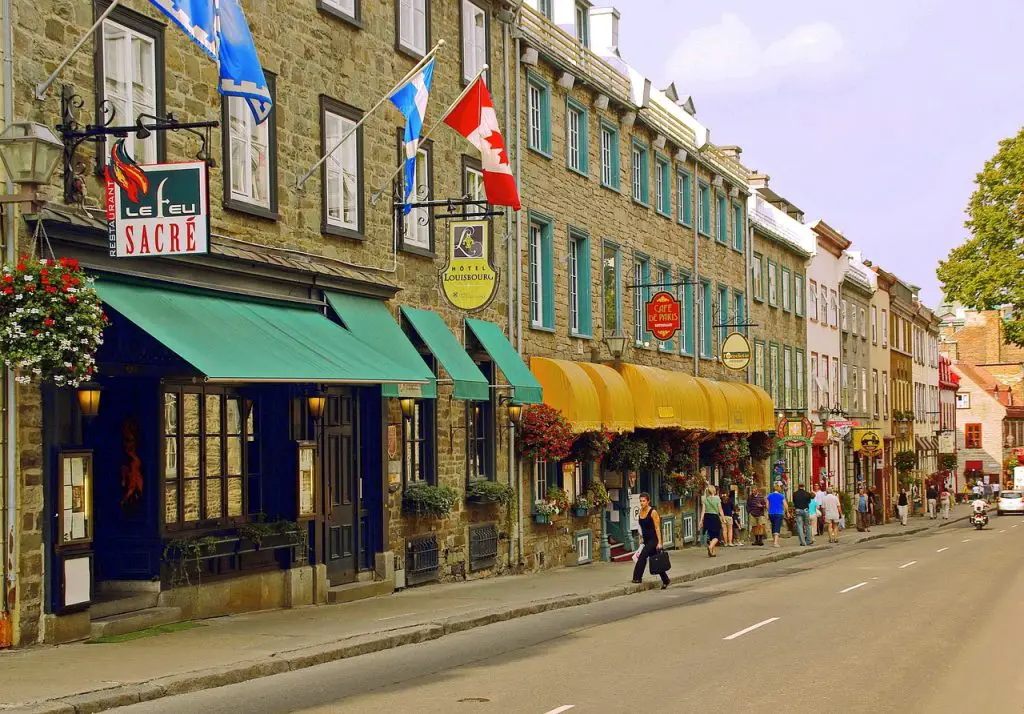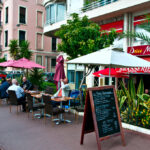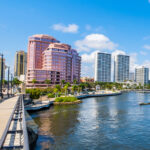Quebec City, known as “Ville de Québec” in French, is the capital of the Canadian province of Quebec, located in the eastern part of the country. It is recognized for its rich history, distinct French Canadian culture, architectural marvels, and natural beauty, embodying the essence of old-world charm mixed with the dynamism of a thriving modern city.
As of my last update in 2021, Quebec City has a population of over 540,000 residents. However, its metropolitan area is home to nearly 800,000 people, making it one of the largest urban areas in Canada. This city is a rare blend of people who are keen to preserve their cultural heritage while embracing the conveniences of the modern world.
Quebec City is built on the banks of the Saint Lawrence River, one of North America’s most significant waterways. The city’s location is strategic, offering spectacular views of the river, the surrounding landscapes, and contributing to the city’s economy. The Saint Lawrence River also serves as a historical reminder of the role it played in the exploration and settlement of North America.
Founded in 1608 by French explorer Samuel de Champlain, Quebec City is one of the oldest cities in North America. The city’s historical district, Old Quebec, has been designated a UNESCO World Heritage site due to its historical importance and the preservation of its 17th and 18th-century architecture. Walking through the narrow cobblestone streets of Old Quebec, one feels transported back to an era of horse-drawn carriages, stone houses, and fortifications. The city’s history is palpable in every corner, from the imposing Citadel to the beautiful Château Frontenac, a grand hotel that has become an iconic symbol of the city.
The Citadel, a star-shaped fortress, is the largest British fortress built in North America. Overlooking the city, the Citadel offers panoramic views and is a vibrant testament to Quebec City’s military history. The Changing of the Guard ceremony, performed daily during the summer, is a captivating spectacle that draws tourists from around the world.
Quebec City is not just a city of history; it is also a city of culture. As the heart of French-speaking Canada, the city embraces the French language and culture, making it unique in North America. Residents primarily speak French, and the city’s signage, literature, media, and education are largely in French. However, English is widely understood and spoken, making it a comfortable destination for English-speaking tourists.
The city’s cultural scene is vibrant and diverse, with an array of festivals, museums, theaters, and art galleries. The Quebec City Summer Festival and the Winter Carnival are two standout events that attract global attention. The Summer Festival is a massive music event that features performances from artists worldwide, while the Winter Carnival is a celebration of winter activities, with parades, snow sculptures, ice-skating, and the iconic ice palace.
Quebec City’s culinary scene is another feather in its cap, offering a fusion of traditional French cuisine and North American influences. From high-end dining establishments to cozy bistros and food markets, the city’s gastronomic delights are sure to satisfy every palate. The locally produced cheese, wine, and maple syrup are not to be missed.
In terms of natural beauty, Quebec City doesn’t disappoint. Just a short distance from the city, one can find stunning landscapes, from the breathtaking Montmorency Falls to the serene Jacques-Cartier National Park. These natural attractions offer various outdoor activities such as hiking, kayaking, biking, and skiing, depending on the season.
Education and research are also integral to Quebec City’s identity. The city is home to several universities, including Laval University, one of the oldest and most respected educational institutions in Canada. The city also has a thriving technology and innovation sector, with numerous research centers and tech startups specializing in areas such as optics, photonics, software engineering, and life sciences. This influx of innovation not only creates a vibrant academic environment but also contributes to Quebec City’s economy and future growth.
The city also enjoys a comprehensive public transportation system that includes buses, commuter trains, and an array of cycling paths. These services not only serve the city’s residents but also facilitate exploration for tourists, providing easy access to the city’s many attractions.
In terms of architecture, Quebec City displays a diverse range of styles, a testament to its long history and cultural richness. From the French Colonial styles seen in the Old City, to the Victorian buildings in the Saint-Jean-Baptiste district, and modern structures in the Saint-Roch district, the city’s architectural landscape is nothing short of enchanting.
The city’s religious history is also apparent, with the iconic Basilica of Sainte-Anne-de-Beaupré and the Notre-Dame de Québec Cathedral. These grand churches showcase Quebec City’s deep-rooted Catholic tradition and its historic ties with France. They are also key attractions, with the Notre-Dame de Québec Cathedral housing a holy door – one of only eight in the world and the only one outside Europe.
Moreover, Quebec City is much more than its historical sites and cultural events; it’s a city with a strong sense of community and identity. Its residents, known as Québécois, are known for their warm hospitality, love for their city, and fierce pride in their heritage. This sense of community shines through in local celebrations, everyday interactions, and the city’s overall atmosphere.
Quebec City is a city that embraces all four seasons. Each season adds a new dimension to the city’s charm. Spring brings a burst of color with blooming flowers and warming weather. Summer offers long days, perfect for festivals and outdoor activities. Autumn paints the city in hues of red, orange, and gold, making it a picturesque sight. And winter transforms Quebec City into a magical snow-covered wonderland, with the Winter Carnival offering a unique celebration of the season’s beauty.
In conclusion, Quebec City is a vibrant city that beautifully blends old-world charm with modern sophistication. Its rich history, cultural uniqueness, architectural beauty, and natural attractions make it a must-visit destination. Whether you’re walking down the cobblestone streets of Old Quebec, indulging in delicious French Canadian cuisine, attending a vibrant festival, or exploring the scenic landscapes surrounding the city, Quebec City promises an unforgettable experience.
Through its history, it reminds us of the stories that shaped not only Quebec but also Canada and North America. Through its culture, it offers a unique perspective, a blend of North American dynamism and European charm. Through its people, it teaches us the values of community, heritage, and hospitality. Quebec City, in essence, is not just a city; it is a living, breathing testimony to the enduring spirit of human civilization and cultural diversity.







